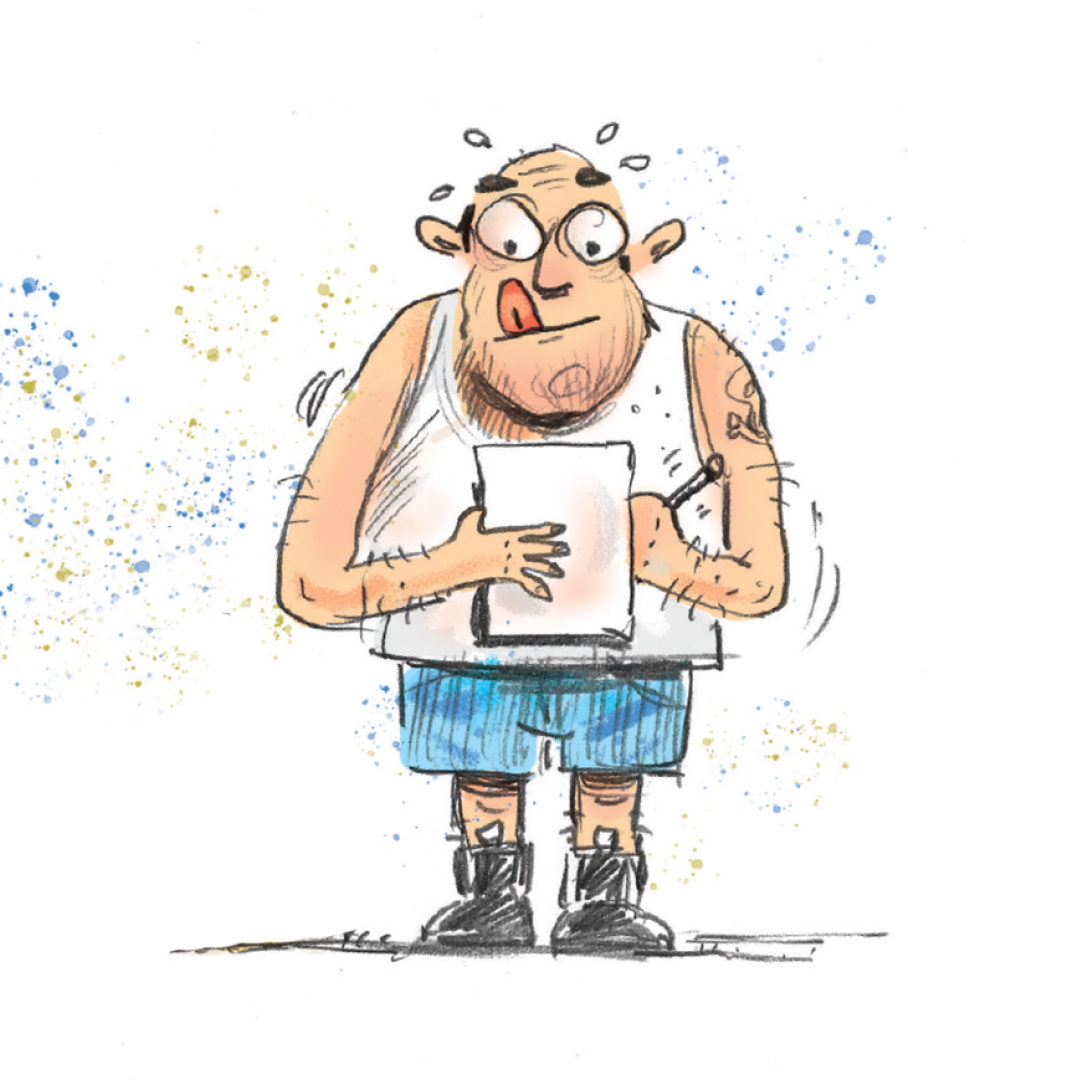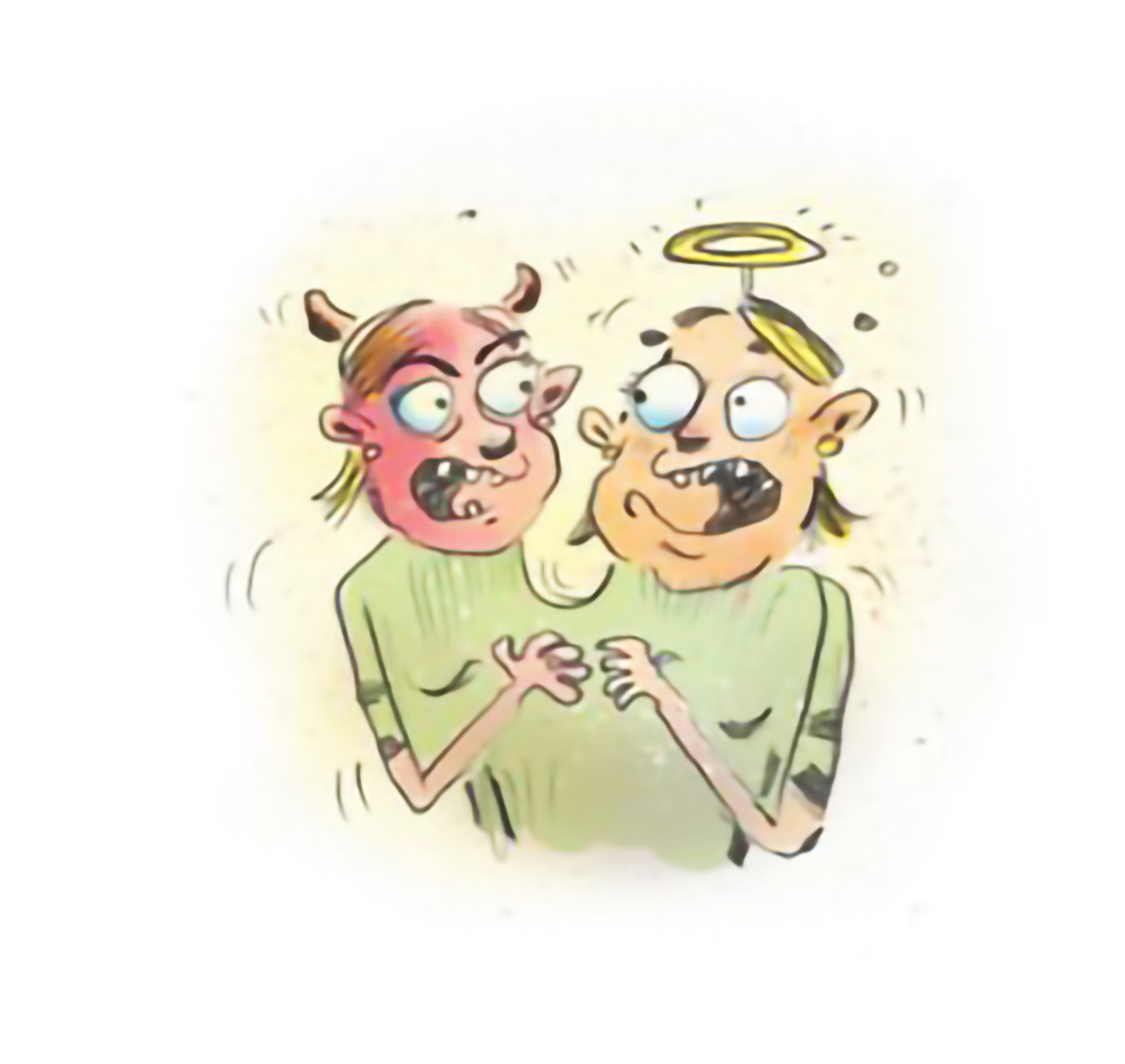Sooner or later we are all challenged by critical times when our ability to cope is seriously challenged. Dark, overwhelming crises when we feel anxious, fearful, and, worst of all, powerless in the face of fate and circumstance. Our level of preparation and how we choose to respond has serious, far-reaching consequences. Crisis, anxiety, and depression are interconnected. That’s why crisis can have such a devastating long-lasting impact on your mental health. A crisis can be defined as a sudden, unexpected event or situation that poses a threat to your physical or emotional well-being. Events that trigger feelings of anxiety which, more often than not, lead to depression and to the many more serious consequences that go with it. In short: Adequate preparation and effective crisis management play a pivotal role in avoiding mental illness.
Psychological problems seldom occur in isolation. Crisis leads to anxiety. Anxiety leads to depression. Depression often leads to self-medication which can, in turn, spiral ever-downwards toward addiction. What’s more, crises come in many different guises. Big and small. Single or in terrible, simultaneous combination and coalition. These catastrophes often seem to arrive when we are at our most exposed and vulnerable. No two of us will react in exactly the same way. Some will be overwhelmed and decompensate, others will rise above adversity to emerge stronger and more resilient than ever. No matter how strong and psychologically resilient you think you are, rest assured, there is a specific tailor-made combination of calamities, a proverbial perfect storm, capable of bringing you to your knees. Especially if you find yourself facing it without a plan.
A crisis creates a tipping point. An undertow into a rip of treacherous circumstances that can sweep you beyond the metaphorical point of no return. Anxiety is a natural response. But left unmanaged, this anxiety can become chronic, leading to feelings of helplessness and hopelessness by which time you are already on what I call the “merry go-down”. A seemingly inescapable vortex of depression that sucks you down into the danger of developing far more serious mental illness.
My advice, hard-won over more than thirty years as a hands-on clinician, can be distilled down to two words. The old boy scouts’ motto: Be prepared!
The best strategies and solutions are created in peacetime as opposed to in the heart, heat, and chaos of battle. When a crisis comes, try to stay calm. Especially in the face of circumstances that you cannot control. Your anxiety doesn’t change anything. Prepare to meet crises with a healthy mind and body. If you wait until a disaster arrives it may be too late. The much-touted saying prevention is better than cure is never quite true as it is in the context of your mental health. By establishing healthy physical and psychological routines you will build resilience and reduce the likelihood of a breakdown.
The connection between crisis, anxiety, and depression is well established. Recognizing the signs and symptoms of these conditions and seeking appropriate help can help you manage your mental health and improve your psychological well-being. If you’d like to armour your mind against the crisis in advance or, even if you are besieged and already in the midst of a crisis, you’ll find our latest MindMovie “Holding the Fort” a metaphorical treasure trove of wisdom, advice, and patient-proven coping strategies. It is the metaphorical story of the siege of a medieval castle. The walls, ramparts, and parapets symbolise the boundaries you set to protect you and yours. The stores of freshwater and healthy food are a metaphor for the nest egg you should set aside to meet the demands of that proverbial and, some would say inevitable, rainy day. Rescuing reinforcements is an analogue for the friends and family that can come to your aid. These are just a few of the time-tested gems of metaphorical wisdom embedded in a ripsnorter of a story presented in a highly polished biaural surround-sound production. Before you are ambushed by the crisis, have a listen to the trailer here: https://metaphoricaltherapy.com/themes/holding_the_fort/
As happens every New Year, resolutions are already dropping like flies. It’s the perfect time to consider how “Revolution“ rather than “Resolution” sets us up for disappointment. Modest achievable goals succeed where grand ambitions fail. As we travel into the New Year the headlights of metaphor can reveal many helpful insights and strategies that can help us change for the better.
This metaphor distance is a good example of what constructional psychologists mean when they say physiology influences psychology.
“I’m past it.”
“The deadline is creeping closer.”
“Down the track.”
“They’re close.”
“We drifted apart.”
“You’re getting ahead of yourself.”
“She fell behind.”
We even occasionally conflate time and distance:
“…light-years away.”
These “distance” metaphors travel effortlessly between tongues and cultures including, amongst others, Germanic, Romance and Slavic language families, as well as Japanese and Turkish.
(See: “Distance in Language: Grounding a Metaphor Edited by Barbara Sonnenhauser and Anastasia Meermann. ISBN: 1-4438-7261-X)
This is because when we talk about being emotionally close to someone, the right angular gyrus of the brain is activated, the exact same part of the brain that processes physical distance. Excellent proof of the old saying that “metaphor is the shortest distance between two ideas”.
When we feel well enough to do something we say we are up to it. Conversely, when unwell we lie down. We feel low. A bit under the weather. Emerging from this fascinating rabbit hole back into the bright prospects of the New Year…
New Year brings with it the opportunity to distance ourselves from our past. We are energised by the potential of a new start in the unblemished present. Yet, we all too often trip ourselves up with unrealistic expectations and magnitudes of change that are simply too great.
The mantra of Alcoholics Anonymous is, “Just for today.” The alcoholic is asked to not drink just for today. They are not asked to resolve to never ever drink again. Today is doable. Forever may be hard to imagine. Success lies in breaking the daunting prospect of abstinence for a lifetime down into bite sized digestible pieces. When struggling to change unhealthy deeply entrenched habits, it is best to implement small doable increments of change over short endurable periods of time. Strenuously avoid “all or nothing” thinking. The inflexible mindset that demands that you adhere utterly to a draconian diet or exercise regime dooms us to failure. The rigid bootcamp mindset will trip you up every time. Be gentle with yourself and have a realistic grasp of the time, discipline and perseverance required to make the changes you’re aiming for.
Metaphorical Therapy reframes the way you see your problems. Looking at our challenges through the lens of metaphor is an excellent way to reveal potential pitfalls. One mistake is a lapse not a relapse. Every setback is temporary until you decide it isn’t. Treat your setbacks as temporary and transitory and they will not derail your goals or undermine your resolutions. A step forward, however small, is still a step forward. Think about the metaphor of the stream that wears down the mountain by washing away a few grains of sand at a time. One minute, one hour and one day at a time is the way to make the most headway in the New Year. Here’s hoping that your resolutions hold and that your best wishes come true.
About the author

Dr. Mark Whittington and Gaby Bush
Dr. Mark Whittington is a graduate of the distinguished Otago Medical School, and has more than 30 years’ experience working at the clinical coalface as a Consultant Psychiatrist.
Gaby Bush is a creative director, writer ,ex-patient, corporate refugee, and survivor of severe PTSD. Gaby is living proof of how well the Metaphorical Therapy System works in the real world.
News & Articles
Related Articles
Over-prescription, a widespread issue in the healthcare industry, refers to the excessive use of medications by healthcare providers. This practice not only leads to unnecessary costs but also poses serious risks to patients’ health.
Cognitive Distortions are irrational thoughts and perceptions that influence our emotions. We all experience cognitive distortions at some time or another and, while this is perfectly normal, in their more extreme forms these distortions can be extremely harmful. Here is a quick overview of common forms of cognitive distortion viewed through the revealing lens of visual metaphor.
People invest a lot of emotion in holding on to their beliefs. And they have a tendency to defend those beliefs very fiercely indeed. Sadly, the first casualties in a confrontation are all too often facts and logic. In fact, they frequently become quite irrelevant. When someone wishes to impress upon you the righteousness of their opinion; passion and volume are often their first weapons of choice.



